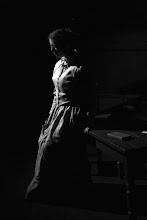We've reached the time of year at work where all I do is check things and fret that I haven't checked enough even though I am now checking one particular thing for the third time and am now taking an enforced break so that my head doesn't explode. The thing that keeps me checking is the knowledge that any mistakes I make will be magnified tomorrow afternoon when everyone else gets to checking stuff. So far, I have missed something every time, which is excruciating, but its always been relatively minor so no-one else has been too bothered. But it would be nice if, this year, I managed to catch everything.
Had a lovely time at the weekend. Caught some rays at Himself's birthday party, although Archimedes was surprisingly reticent given his recent overtures of friendship. Managed not to fail at Giant Jenga despite clutching a plate of delicious barbecued goodness while removing Jenga bricks.
Then the Mule and I caught a film that we'd wanted to see for a while. Brick has been criticised (by Trash Addict, see link, right) for taking the whole teenage adaptation thing too far in the way that it sets a Raymond Chandler-esque tale in a high school. I understand the criticism as cinematic power does seem to be placed fully in the hands of teenagers and films therefore become aimed at that market. However, as MuleBoy mentioned on the way home, it is difficult to consider Brick attracting the texting, giggling audience that seem to frequent the same cinemas as us. With a labyrinthine plot, no sex or nudity and witty dialogue that never panders to the lowest common denominator, it isn't your typical teen film. The reason why high schools work as a setting and have been used in updatings of literature and styles is because the constraints and social structures that govern them relate more closely to past social structures than anywhere else in modern-day Western society. Clueless worked as an updating of Emma because of the hierarchical class divisions perceived in both. Brick works because it takes a similar class structure and uses the central point of the school to create the film noirish claustrophobia, although we never see our antihero Brendan actually in class (he does, however, acknowledge a debt to Accelerated English when complimented on his nifty turn of phrase). My favourite aspect of the film was the language, which used the rhythms of film noir language and some of the phrasings in order to recreate that hard-boiled style of the 1940s. I really enjoyed Brendan's dry wit and delivery and am impressed by the actor, Joseph Gordon-Levitt's, graduation from sitcoms to difficult drama. I liked the following exchange in particular, as Brendan provokes the anger of a school jock:
Brad Bramish: Oh yeah?
Brendan: Yeah.
Brad Bramish: Oh yeah?
Brendan: Yeah.
Brad Bramish: Yeah?
Brendan: There's a thesaurus in the library. Yeah is under "Y".
Love it.
Tuesday, June 20, 2006
Subscribe to:
Post Comments (Atom)

No comments:
Post a Comment